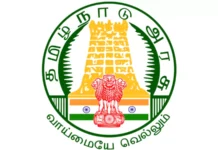Centralized Public Grievance Redress
The Centralized Public Grievance Redress and Monitoring System, often referred to as CPGRAMS, is an online platform created by the Government of India to effectively handle complaints and grievances from citizens in a transparent, efficient, and timely manner. It was initiated by the Department of Administrative Reforms and Public Grievances (DARPG) under the Ministry of Personnel, Public Grievances and Pensions. The system’s goal is to enhance public accountability by offering citizens a direct means to communicate their concerns to various government departments and ministries. CPGRAMS serves as a crucial instrument for fostering good governance and ensuring that every citizen’s voice is acknowledged and acted upon.
The primary aim of CPGRAMS is to allow citizens to submit complaints regarding any issues they encounter with government services or officials. These grievances may pertain to delays, unfair practices, or the quality of public service delivery. The portal functions as a link between the government and the public, ensuring that issues are addressed at the appropriate level. Once a complaint is filed, it is automatically directed to the relevant department or ministry for review and necessary action. Each grievance is given a unique registration number, enabling users to monitor the status of their complaint online.
The CPGRAMS platform can be accessed at pgportal.gov.in, allowing citizens to submit complaints online at no cost. The process is straightforward and user-friendly. A user must register on the website, provide basic personal details, and describe the issue thoroughly. Any supporting documents can also be uploaded for verification. After submission, an acknowledgment is generated, and the complaint is sent to the appropriate authority. The relevant office is then obligated to investigate and respond within a specified timeframe, typically ranging from 30 to 45 days, depending on the nature of the grievance.
Related Posts

One of the primary advantages of CPGRAMS is its collaboration with various ministries, departments, and government agencies at both central and state levels. This collaboration guarantees that grievances are handled effectively, regardless of the department involved. The system encompasses a broad spectrum of sectors, such as public health, education, transportation, employment, pensions, and municipal services. Additionally, it offers citizens the ability to escalate their grievances if they are dissatisfied with the response received. This escalation process ensures accountability and mitigates negligence in the management of complaints.
The CPGRAMS platform also features a comprehensive monitoring and reporting system. Senior government officials can examine data and analyze trends in complaints to pinpoint systemic problems and areas that necessitate administrative reform. The portal produces monthly and quarterly reports, which are utilized to evaluate the performance of departments in addressing grievances. This data-driven methodology not only enhances transparency but also aids policymakers in making evidence-based decisions to improve service delivery and the quality of governance.
Throughout the years, CPGRAMS has experienced numerous technological enhancements to increase its efficiency and focus on citizens. The portal is now equipped with Artificial Intelligence and Machine Learning tools that assist in automatically categorizing and prioritizing complaints. It also sends automated reminders and notifications to ensure prompt resolution. The mobile application version of CPGRAMS enables citizens to file complaints from their smartphones, making the process more accessible, particularly for individuals in rural and remote regions. The interface is available in several Indian languages to foster inclusivity and reach a broader audience.
The government has implemented feedback and rating systems on the CPGRAMS platform. After a complaint is addressed, citizens have the opportunity to rate their satisfaction, which is documented for monitoring departmental performance. This approach fosters a culture of accountability among government officials and encourages departments to address grievances swiftly and effectively. The ongoing evaluation process also aids in identifying best practices and areas that may require additional training or policy reform.
CPGRAMS has significantly influenced governance in India by enhancing transparency and trust between citizens and the administration. It empowers individuals to hold government authorities accountable and ensures that complaints do not become lost in bureaucratic processes. Additionally, the system has improved the efficiency of public service delivery by pinpointing recurring issues and assisting departments in taking corrective measures. It serves as a benchmark for e-governance initiatives that emphasize citizen engagement and digital empowerment.
Website Link
In summary, CPGRAMS marks a substantial advancement in citizen-centric governance. It integrates technology, transparency, and accountability to establish an effective grievance redressal mechanism that is accessible to all Indians. By enabling individuals to directly report their concerns to the government, CPGRAMS reinforces democracy and fosters trust in public institutions. The system not only addresses individual complaints but also contributes to the long-term enhancement of governance, making India’s administrative framework more responsive, efficient, and focused on the needs of the people.
























